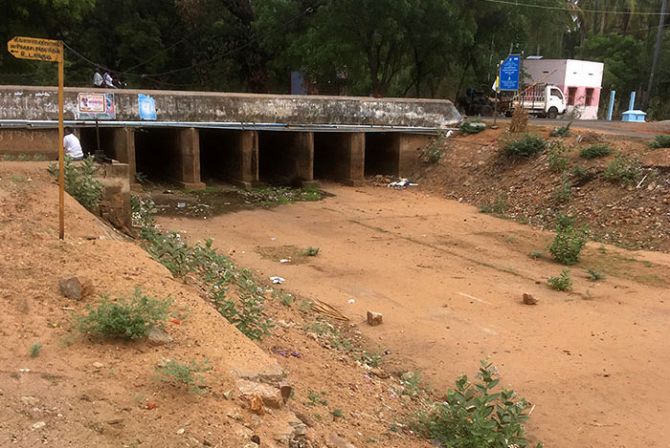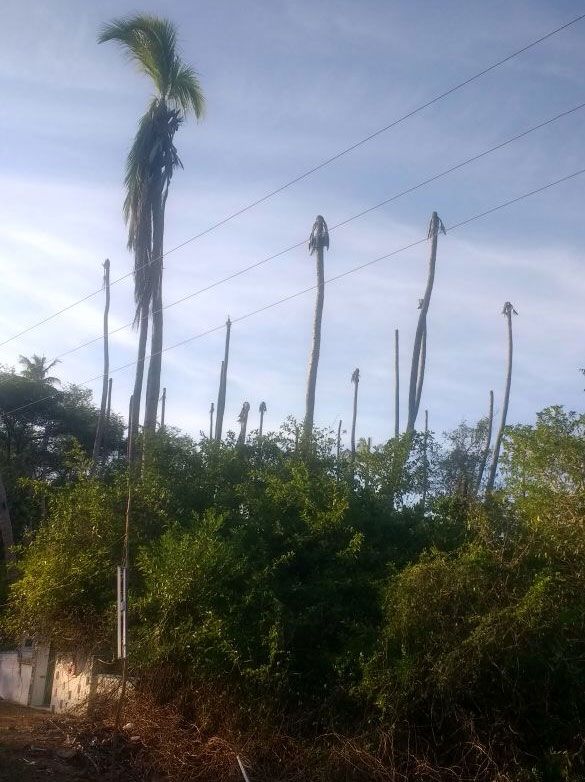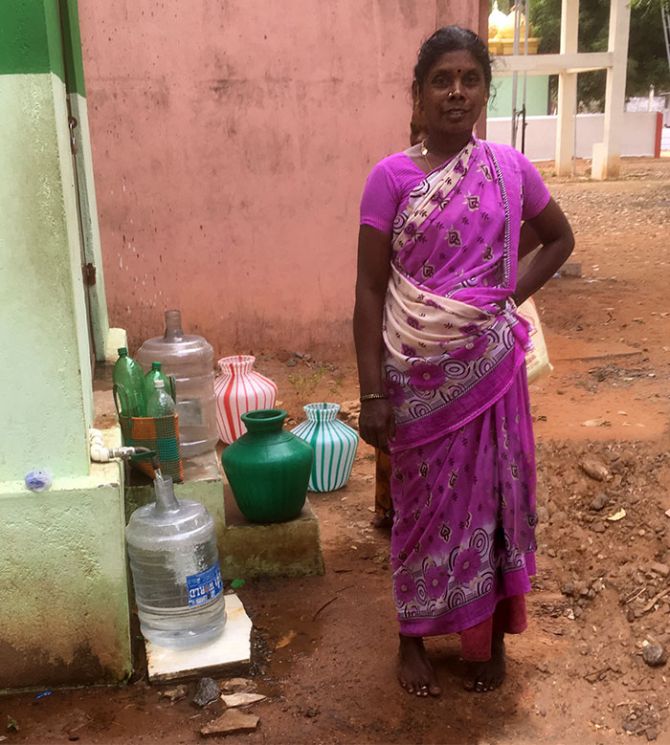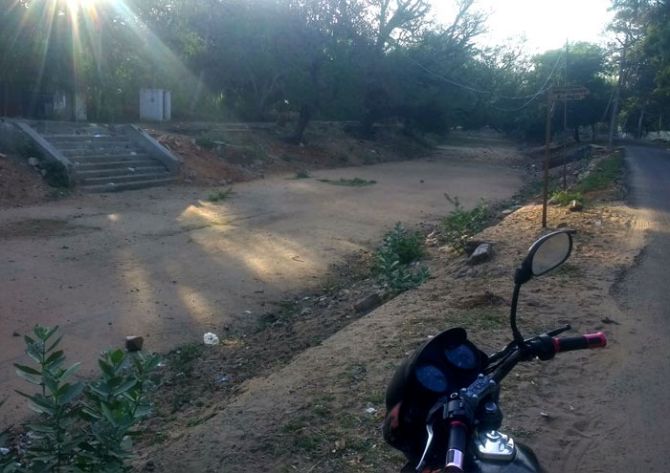'The canal I bathed and swam in, has dried up. It’s the worst drought in 140 years. First the mango trees died. Then the coconut trees. Finally the hardy palm trees have died.'
A Ganesh Nadar gives a chilling account of how the dwindling ground water has struck a death-knell for his little village.

When I first came to my village in 1988 what I loved most was the morning swim in the river (it is actually a canal but we have always called it a river) along with my cousins. We bathed, gossiped, exercised and floated about lazily in its gentle waters.
Floating in a river with your eyes closed is the closest you can get to heaven on earth.
29 years later -- my river has died. We in Tamil Nadu are experiencing the worst drought in 140 years.
The river was originally a canal which distributed the water from the Thamirabarani river. Before the water reached our canal, it was stored in a large lake called Kadamba, about 3 km from my village.
Kadamba was so huge that locals called it “Kadalil paadhi Kadamba”, which means 'half the ocean sized Kadamba'.
In my 60 years on Earth, I have never seen the Kadamba completely dry. This year I saw it parched for the first time.
Since there is no water in the river, village folk have now started bathing inside their homes.
The village had a few wells and the well water was also used for irrigating paddy by those who had pumps to draw the water out.
But in a few years the ground water got depleted and the wells ran dry. First the mango trees started dying and then the coconut trees.
Finally the hardy palm trees have died.
Now only the doughty neem survives.
The rich drilled bore wells deep into the heart of the earth and sucked her dry. The poor did not have the money to do this.
I refused to dig a bore well because I knew this would kill the neem tree in my home. It has lived inside my walls for 30 years.

In the past six months, water comes in the house tap on alternate days from 7-9 am. It is supplied by the panchayat which has a very deep bore well near the river.
This is the second bore well in my village. The earlier one was near the red sand desert that borders my village. It was originally a brick well used by dhobis to wash clothes. They used to draw the water out in buckets.
After the dhobi’s well dried up, the panchayat dug a bore well which was 50-150 feet deep, but then the water turned salty.
In the process this single bore well led to the death of 500 large mango trees that had stood for over a century by denying them water. And now the bore well near the river is killing the mango trees by the river bank.
The owner of well known retail chain Saravana Stores is paying farm labourers a daily salary for watering the mango trees with 5 pots of water. Earlier the panchayat had used one pot of water a day which the ground simply drank up and left nothing for the trees which started dying.

When I was a child growing up in Mumbai I used to be fascinated by the pavement-dwellers. They used to sit with one bucket of water for their morning ablutions. They first washed their clothes, then brushed their teeth. They then wet themselves, soaped and finished bathing -- all from that one bucket of water.
I used to think it impossible but now I know it is possible.
I am used to flushing the toilet every time I use it. But now I have to use the water sparingly to make it last for two days. The washing machine sits idle because there is no water.
The last time I washed clothes by hand was as a boarder in Barnes School 45 years ago. Luckily, I have not forgotten how to wash clothes using minimum water.
The absence of water has hit farm labourers hard. Without water they have no work. The price of coconuts has skyrocketed as the trees are drying up.
Even loan sharks are wary as people don’t have the money to pay back at any interest.
MGNREGA starts and stops at will. It doesn’t follow any logical pattern. It depends on the whims of the men sitting in air-conditioned cabins in Delhi who I doubt know of a village called Panikkanadarkudieruppu and the fact that it hasn’t rained here in two years.

Thoothukudi, or Tuticorin, is the worst affected district in Tamil Nadu. It rains all over the state but not here. For this people blame the salt pans which are the second largest in the country after Gujarat.
Some say it is because of the sins of the locals. Some say the Gods are angry, while the intellectuals discuss climate change and global warming.
One stark fact is staring at us in the face but nobody mentions it -- as if by ignoring the fact it will go away.
It is that if the panchayat bore well dries up, we will have to evacuate the village.
The rich will go to their city flats and the poor will land up on the city pavements. The very same pavements where people wash, brush their teeth, and bathe with one bucket of water.











 © 2025
© 2025